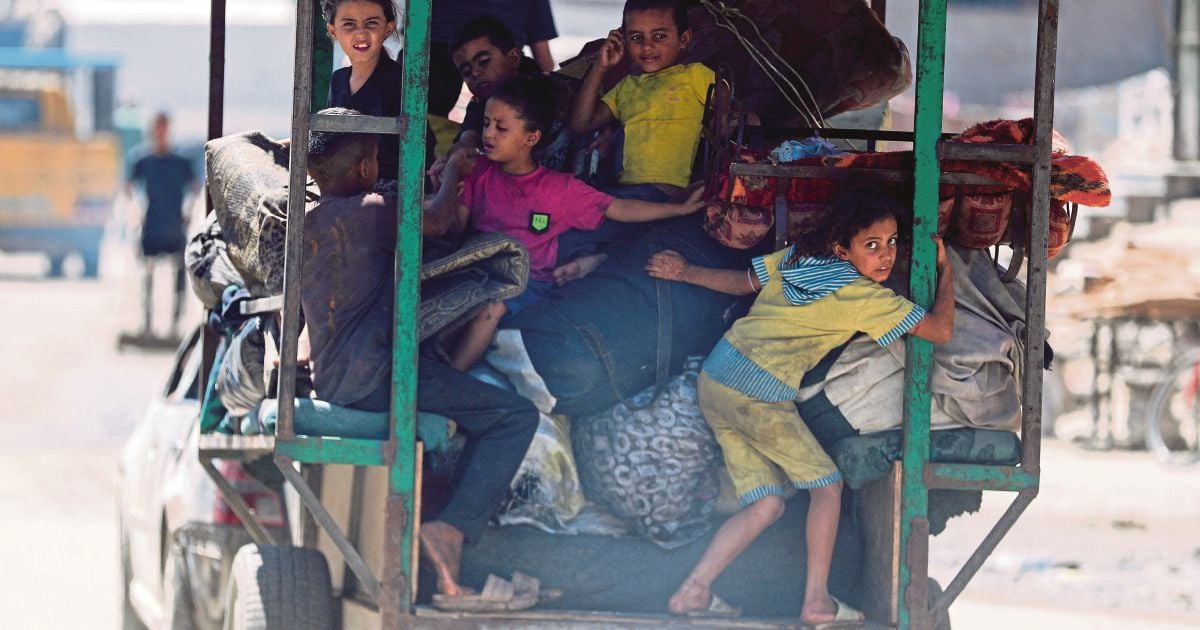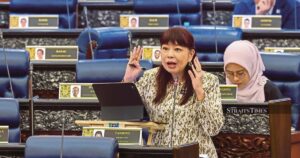EVERY day in Gaza, children arrive at our clinics with blast injuries, infected wounds or signs of starvation. As doctors, we can try to treat their pain — but we cannot stop the bombs or lift the siege.
That is why we are calling on world leaders and medical professionals in Southeast Asia: use your influence, your voice and your political power to stop this genocide.
What is happening in Gaza is not just a humanitarian catastrophe, it is the systematic destruction of a people. Israel is committing genocide against Palestinians in Gaza and doing so with absolute impunity.
Each day, our 1,399 Médecins Sans Frontières (MSF) colleagues working in Gaza face the devastating reality that they cannot stop a genocide. But world leaders can, if they choose to act.
As the two-year anniversary of this relentless and extreme violence approaches, the political choices required to end it are long overdue.
We commend Malaysia’s leadership in fearlessly calling out Israel’s actions in Gaza and urging the world to stand in solidarity.
We now ask that Malaysia — through its medical professionals, associations, civil society and the wider public — continue to demonstrate courageous leadership and rally Asean to act with one voice on Gaza.
The human toll of the war is staggering. According to the latest Health Ministry figures, more than 64,000 people have been killed, including 20,000 children. The true death toll is likely higher.
The Israeli military has attacked everything and everyone. There is no safe place in Gaza. We are treating devastating injuries as a result.
Routine medical data from six MSF-supported healthcare facilities in 2024 (Jan 1 to Dec 31) indicated 207,942 general outpatient consultations were conducted, 55 per cent of which were for women and 20 per cent for children younger than 5 years.
Wound care alone accounted for 93,254 consultations with 32 per cent for women and 29.7 per cent for children younger than 15 years — with 9,179 for children younger than 5 years.
Violent trauma presented in 39,700 wound care-related consultations, 83 per cent caused by bombs and shells, and 11.3 per cent by gunshots.
In two hospitals we observed, nearly 60 per cent of lower-limb wounds were related to explosive weapons, often with open injuries to bone, muscle or skin.
On average, 18.3 per cent of patients coming to health facilities for the first time had infected wounds, which is especially concerning considering the high prevalence of antimicrobial resistance in the region and lack of fully functional microbiology laboratories or suitable antibiotics.
The Israeli authorities have systematically targeted Gaza’s healthcare system — bombing hospitals, raiding medical facilities and endangering the lives of staff and patients — acts that may amount to war crimes.
Twelve of our colleagues have been killed and MSF orthopaedic surgeon, Dr Mohammed Obeid, remains detained by Israel since October 2024.
In total, more than 1,500 health workers have been killed. A policy of collective punishment, including starvation by design, has achieved its brutal objective — famine has been declared.
A recent survey at MSF clinics in Gaza showed 25 per cent of pregnant or breastfeeding women were malnourished, which can increase the risk of stillbirth, miscarriage and premature birth.
The limited food assistance available has been cynically weaponised. The so-called Gaza Humanitarian Foundation (GHF), an Israeli-run, United States-funded operation, is responsible for killing 1,400 people and injuring 4,000 more.
We have treated children shot in the chest while reaching for food, and people crushed or suffocated in stampedes. Detailed analysis of gunshot wound patients at one of our clinics found 11 per cent of bullets struck the head or neck, and 19 per cent hit the chest, abdomen or back.
These distinct patterns and anatomical precision of injuries strongly suggests the intentional targeting of people. This level of brutality is unconscionable.
And despite the condemnations and calls for dismantling it, the global inaction to stop GHF is baffling.
Deliberate shortages of water are also fuelling diseases. Last month, MSF medical staff treated 4,000 people for watery diarrhoea — potentially deadly for malnourished children.
We could increase the supply of clean water but are regularly blocked from doing so by import restrictions.
Meanwhile, settler and state violence in the occupied West Bank is accelerating. Land theft, forced displacement and attacks on communities are intensifying.
Governments around the world have a moral and legal obligation to respond. This means using every available political, diplomatic and economic measure to stop these atrocities.
Dr Wilson Li is an orthopaedic surgeon from Hong Kong, and vice president of MSF Hong Kong Regional Association. Dr Veena Pillai is a medical professional from Malaysia and board member of MSF Hong Kong Regional Association
The views expressed in this article are the authors’ own and do not necessarily reflect those of the New Straits Times
© New Straits Times Press (M) Bhd






